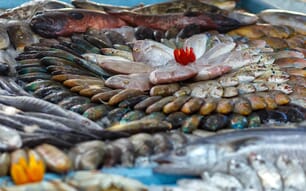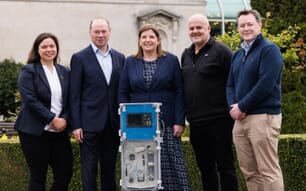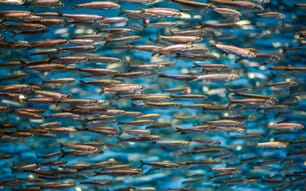The working group chaired by Lt Cdr John Leech, Chief Executive, Irish Water Safety, was set up by the Minister to examine a range of important issues for Ireland’s fishing industry such as safety standards and training on board vessels, compliance with regulations, recent technical innovations and the fishing sector’s approach to personal safety.
In its parallel work, the Working Group also considered options for making the fishing industry safer and more attractive, economically, as a career option for potential new entrants, bringing forward recommendations for improving career structures and the provision of opportunities for lifelong learning.
Central to the working groups recommendations on improving safety in the industry, is the need for significant culture change across the fisheries sector.
Commenting on the report, the Minister stated: “We need to ensure that the concept of safety at sea, and on the water generally, becomes as commonplace and habitual as safety on our roads. While this report brings forward many recommendations across its broad ranging terms of reference, the central message to come from the work of this group, is the need for permanent culture change in the fisheries sector. Vessel operators, skippers and crew members need to work together so that a safety first culture becomes the norm and the safety of both vessels and personnel is prioritised.”
The Minister went on to say: “I am making an additional €5.6m available to the fisheries catching sector for training and skills development under the European Maritime and Fisheries Fund (EMFF) 2014-2020 Operational Programme. This extra funding will be instrumental in addressing recommendations in the report and driving a culture change to enhance safety across the fisheries sector.”
The group identified the wearing of Personal Flotation Devices (PFDs) as being critical to reducing fatalities and the need for constant vigilance, regarding the challenges and dangers inherent in working at sea and on island waterways.
The Working Group report also highlights the need for Ireland’s existing maritime regulations to be fully observed and the need for safety-training practices to be augmented to include mandatory certificates of Competence, for both operators and crew/deckhands on all vessels, vessel ‘stability’ training and work-related safety, survival, fire and first aid procedures, targeted initially at operators of vessels less than 24 metres in length where the majority of recent fatalities have occurred.
In its parallel work of examining possibilities for improving the attractiveness of the fishing industry as a career option, the Working Group has brought forward a number of recommendations, aimed at improving the training incentives and career structures within the industry.
In one of its principal recommendations in this area, the Working Group identifies the introduction of more tailored social-protection provision as one of the most significant negative factors in retaining qualified and experienced personnel in the fishing industry and advocates significant changes to the existing provisions for those working in the fishing industry. Other important recommendations in this area focus on the need for lifelong learning and the development of career diversification paths, to reflect the complex demands of the modern industry.
Minister Coveney concluded by saying: “I would like to thank the individual members of the Working Party and Ltd Cdr John Leech for the good work they have done in bringing this Report to fruition. I expect the Report will lead to substantial positive change in the industry over time.”




